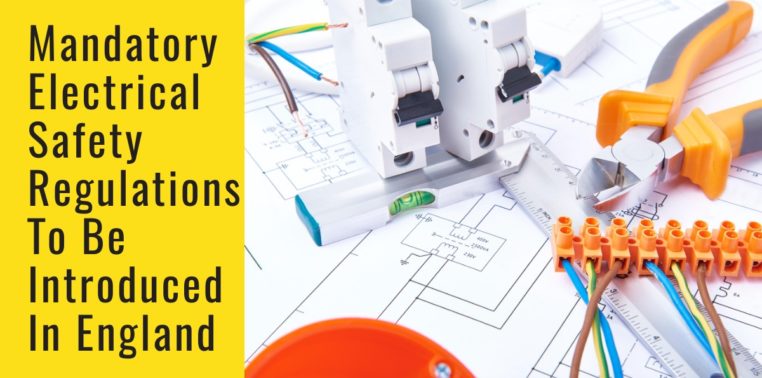
In early January 2020, ‘The Electrical Safety Standards in the Private Rented Sector (England) Regulations 2020’ were proposed in Parliament. The new regulations will be effective from July 2020 for new tenancies and from April 2021 for tenancies that already exist. Presently, landlords are not required to compulsorily provide an Electrical certificate or Electrical Installation Condition Report (EICR) every five years. As per the latest regulations, landlords have to maintain the electrical installations in good condition so that they are safe for tenants to use.
In England, the most common reason for fires is faulty electrical wiring and appliances. Such accidents result in a lot of damage to humans, as well as property. It also results in unnecessary financial losses, along with mental stress. All this can be prevented if landlords conduct regular inspections of their electrical fittings every five years to ensure they are safe for use by tenants. Regular inspections help to discover the faults in wiring or appliances, such as damaged wires or appliances that use too much current. If defects are found out, landlords can take remedial action and undertake the necessary repairs to ensure the safety of their property.
The new regulations that are proposed to be implemented from July 2020 aim to reduce the incidents of accidents due to fires in properties. The rules will help the properties to maintain a better standard of safety and will minimize the losses due to damage caused by accidental fires. The landlord gas and safety certificates will ensure safety for both tenants as well as the landlords.
The new rules state that private landlords and agents must get all electrical fittings and appliances checked and tested every five years by a qualified electrician at their property. This is to be done regardless of whether the property is occupied or not. An electrical certificate for landlords also has to be obtained. The new regulations apply to those residential tenancies which have not been listed as an excluded tenancy and which tenants can occupy partly or fully as their primary residence and for which they pay rent.
The new rules state that the Landlords must do the following:
If the electrical certificate has mentioned any faults found in the wiring or appliances, the landlord is obligated to get necessary repairs done by a qualified electrician within 28 days after the inspection. The landlord must also obtain a written confirmation stating that the rules have been complied with, and repairs have been carried out. A copy of this confirmation has to be given to the present tenant within 28 days of the repair work carried out.
As per the new regulations, local housing authorities have the right to ensure that the rules are being followed, and they have also been empowered to undertake remedial steps.
These are the new powers given to the local authorities:
The deadline for the imposition of the new regulations, along with the proposed fine of £30,000, will ensure that landlords will conduct electrical safety inspections of their properties at the earliest. In this way, they will ensure compliance with the new rules. It will also ensure that the properties are safe both for the landlords, as well as the tenants.




 Request Callback
Request Callback